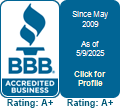
To combat increasing energy expenses and embrace sustainability, many homeowners are looking for ways to enjoy the same standards of comfort while reducing utility bills. With help from the Inflation Reduction Act, federal tax credits are available for high efficiency HVAC equipment. These credits offer big savings, as long as the homeowners choose eligible equipment and submit the right paperwork.
If you’re worried about a long, complicated process, we’re offering to help! Select Comfort Systems hopes this guide will provide all the information necessary to take full advantage of HVAC tax credits this year. Here’s what you should know.
How Do These Tax Credits Work?
These valuable tax credits for energy-efficient home improvements are just one portion of the recent Inflation Reduction Act. With the higher cost of energy making an impact, helping more homeowners upgrade their equipment is always beneficial. The primary goal of these credits is to help pay for high efficiency HVAC equipment and other projects. Of particular importance are the Residential Clean Energy Credit and the Energy Efficiency Home Improvement Credit.
Don’t forget, to apply for the credits, you’ll have to complete IRS Form 5695. Additionally, this form has to be submitted for the same tax year the upgrades were installed, not bought.
Maximizing Savings with the Energy Efficiency Home Improvement Credit
Through 2032, the Energy Efficiency Home Improvement Credit provides up to $3,200 each year for energy-efficient home upgrades. This amounts to 30% of the total project’s cost. It's important to note in order to get back the maximum amount, you’ll have to make several investments. For example, you’ll get up to $2,000 for installing a higher efficiency heat pump. This can be paired with an additional $1,200 in credits for more projects in the tax year.
While heat pumps are a popular option for the tax credit, high-efficiency furnaces, air conditioners, boilers, and other HVAC systems are still eligible for this tax credit. You’ll need to confirm the make and model’s energy efficiency rating is high enough for eligibility.
Residential Clean Energy Credit
The Residential Clean Energy Credit amounts to roughly 30% savings on a variety of residential clean energy equipment upgrades. Eligibility is only extended to homeowners looking for new clean energy solutions for their home. While the Home Improvement Credit highlights utilities and HVAC systems, this credit targets renewable energy sources like solar and wind energy.
Some specific items in this tax credit include the requirement that installation must occur between 2022 and 2032. But at the same time, homeowners can use any excess credit to reduce taxes in future years. This is a great way to soften the entry into investing in clean energy.
Additional Qualifications for Energy Tax Credits
Because HVAC systems are one of the major reasons for high energy bills, these tax credits can guide you to the most energy-efficient options. But home energy efficiency can be improved in many other ways. Apart from the previously listed HVAC upgrades, {you could also choose|other eligible items include|you also have access to:
- Heat pump water heaters
- Modern electrical panel improvements
- Upgraded electrical wiring
- Enhancements to insulation, air sealing, and ventilation
- High-efficiency electric stoves, cooktops, ranges or ovens
- Heat pump clothes dryers
- Water boilers
Just like with installing one or more HVAC systems, you’ll need to confirm that your chosen products meet the required energy efficiency ratings.
Three Tips for Making the Most of 2024 HVAC Tax Credits
While any one of those upgrades can boost home energy efficiency, some planning ahead will ensure the best chance at more long-term benefits. Get the most from your HVAC tax credits with the following three tips:
- Perform an energy audit to pinpoint valuable enhancements. Rely on professional HVAC assessments for crucial advice.
- Improve your home's thermal efficiency with better windows and doors.
- Explore potential rebates from utility companies for clean energy upgrades. Renewable sources like solar, wind, and geothermal contribute to community power grid sustainability.
- Remember to consider financing plans offered by service providers.
Select Comfort Systems Can Help You Secure HVAC Credits for 2024
Partner with local HVAC professionals like Select Comfort Systems for eligible serves like energy assessments or new installation. Our helpful installers can deliver whatever you need for a more energy-efficient home.

